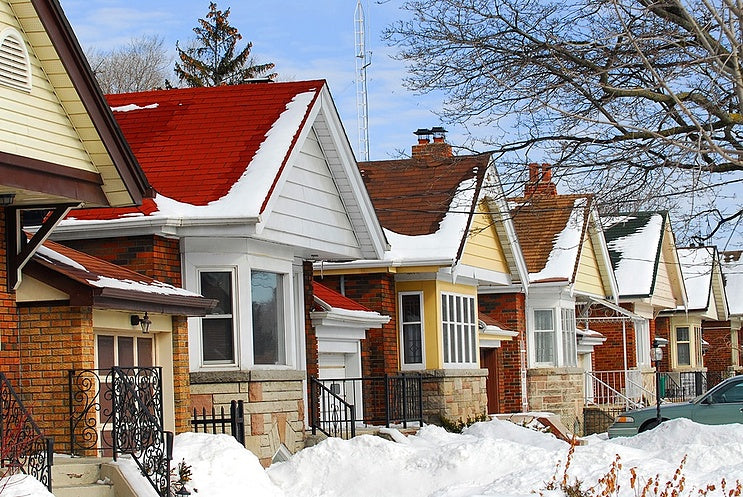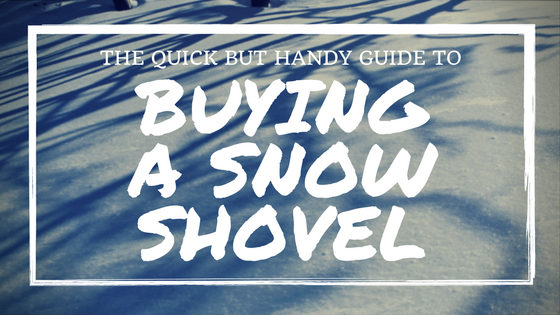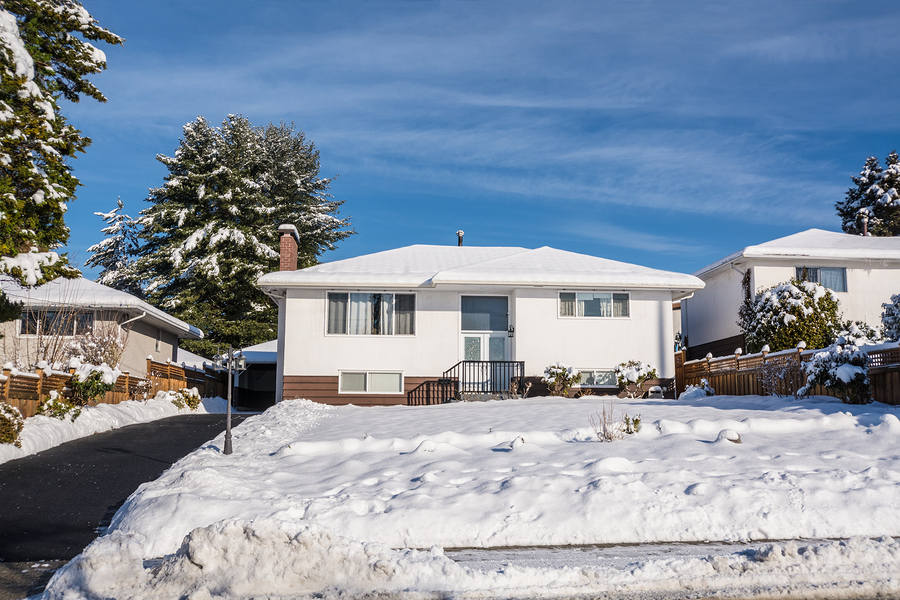"Surviving" winter, both in terms of safety and finances, is not at all automatic. Winter weather brings with it numerous challenges that will test your property's durability and your ability to cope with harsh and changeable conditions. Below, we list 15 tips that every homeowner should know to minimize risk and loss during the cold season:
- Keep high-traffic areas clear of all clutter/debris. This includes sidewalks, outdoor stairways, and home entryways. Tripping hazards are rendered all the more dangerous when covered by a blanket of snow.
- Keep walking areas free of all ice and snow. A good snow shovel and an effective deicer can accomplish the goal, but you may wish to use snow melting mats to save time and labor and minimize the risk of slip-and-fall accidents.
- Fill in all holes/depressions around the building where ice patches may form, thus removing a major slipping hazard.
- Inspect your pavement and brickwork and repair it before winter begins to reduce the wear and tear it will suffer and to eliminate an accident source.
- Install proper lighting where people will walk, including the driveways, entryways, and walkways. Consider using motion-sensing lights to minimize energy usage and eliminate the need to switch on/off the lights.
- Clean out your gutters and downspouts in late fall to help prevent clogs from backing up water and contributing to ice-dam formation. During the winter, use a roof rake to remove snow from the eaves, also to keep down the ice.
- Knock down all icicles hanging off your gutters, your roof line, or over your porch. People are injured by falling, sharp-ended icicles every year, and they are a liability issue.
- Have a snow removal plan in place, whether it be gathering the tools/supplies to do it yourself, relying on a friend or neighbor, or hiring a professional service.
- Use a highly absorbent rug just inside your front door to prevent puddling. Also put a non-skid plastic pad underneath it unless the rug's bottom itself is non-skid.
- Prevent pipes from freezing during power outages or sudden drops in temperature by always keeping the thermostat at 55º F (12.78° C) or higher, installing extra pipe insulation, and disconnecting garden hoses before the first snow.
- Have your heater inspected and/or repaired to ensure energy efficiency and safety. Fires can erupt in a poorly maintained heater when incompletely burned gas trapped inside suddenly ignites, and ineffective heaters also pose a higher carbon monoxide danger. To improve your indoor air quality, remember to replace old filters and be sure to keep the fan running smoothly.
- Have an emergency generator ready in case you lose power for an extended period of time. Never run a generator indoors, however, since the fumes could be toxic, and if you must use an extension cord, make sure it is heavy duty and in top condition.
- Use surge protectors with all home computers and electronics. Also consider investing in a battery-backed UPS system, which will protect against power outage damage and give you a chance to safely save data and power down.
- Always keep at least one cell phone charged, and have multiple means of communication available. Arrange for a neighbor to check on you, and you on him, during a major winter weather event.
- Insure your home and valuable property within it with a good home insurance policy. This is, of course, your last line of defense when all else fails- but sooner or later, you are likely to have to rely on it.


